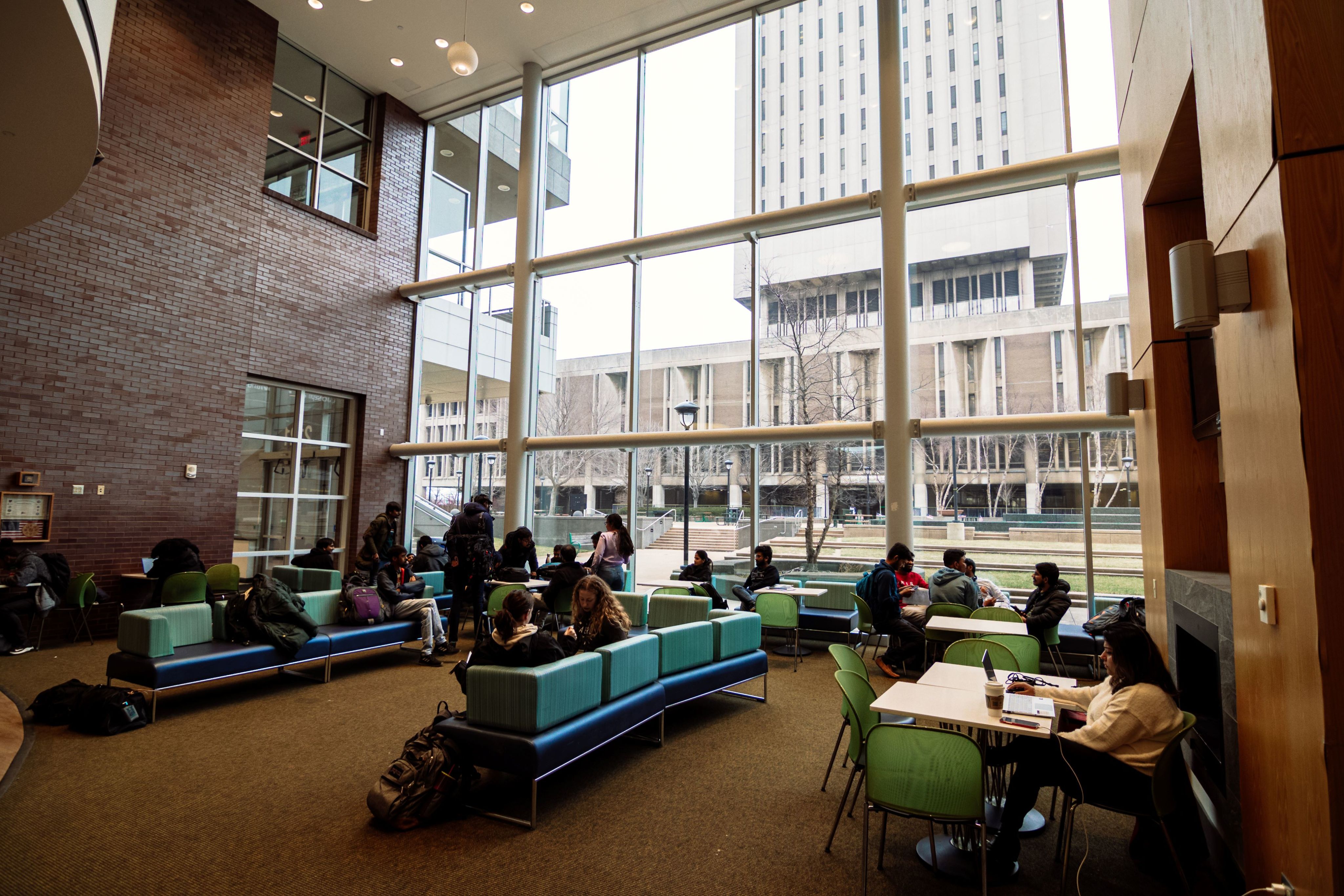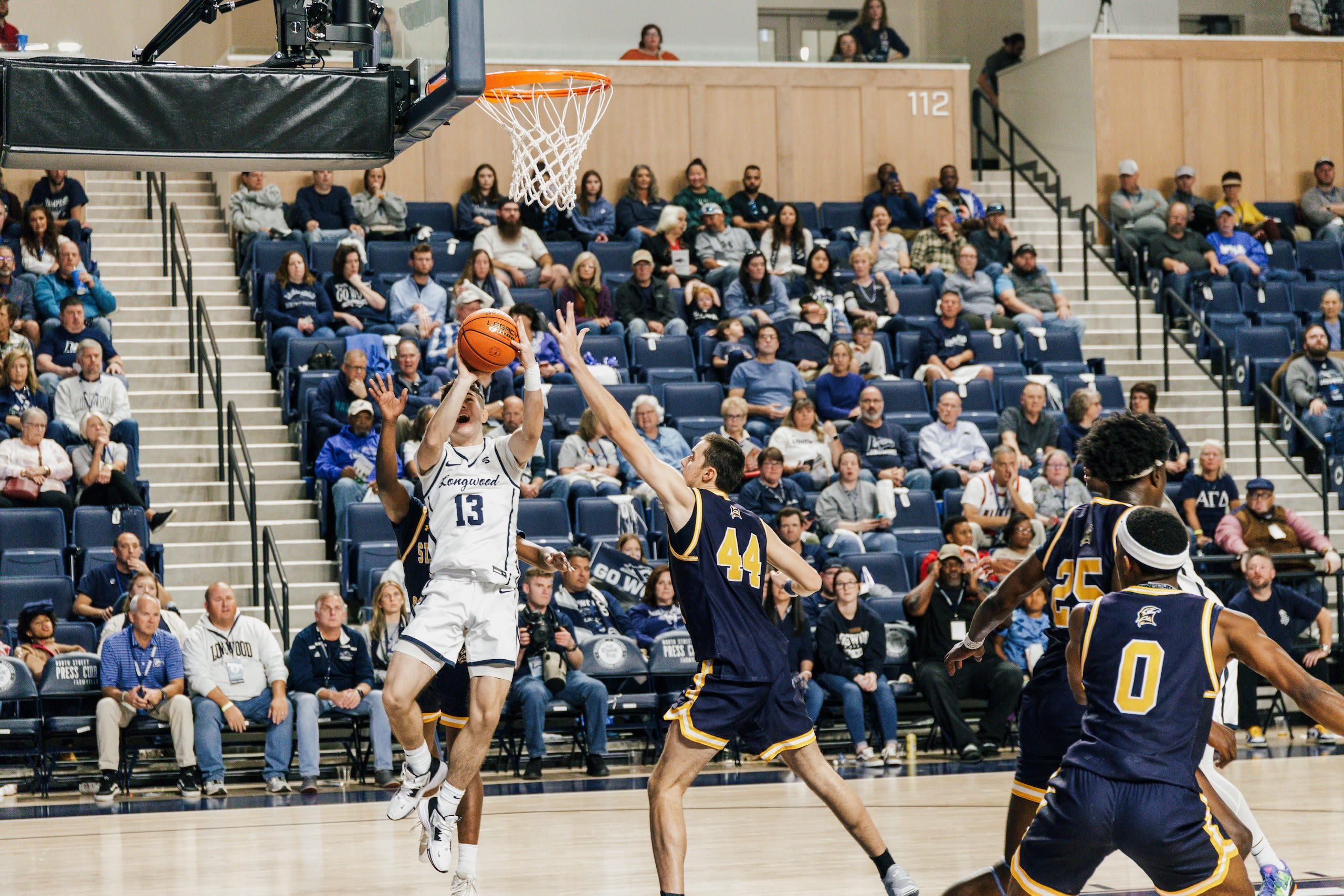Maximizing the Value of Your Student-Centric Campus Centers
The Benefits of Outsourcing Management of Student Life Facilities and Programs

Campus life centers are more than backdrops to a college education — they can be vibrant stages for student development, hubs for community building, and sources of additional revenue. Vital to enriching students’ everyday experiences, these centers can face several operational challenges, particularly in today's higher-education landscape.
Employee burnout, shrinking enrollment, and the effects of the Great Resignation have left a palpable impact on campuses nationwide, such as labor shortages. Reflecting this strain, a 2023 Chronicle survey found that 61 percent of college leaders said that the labor shortage in building services was a “serious” or “moderate” issue. These market challenges are forcing colleges and universities to evaluate their operations and to surface opportunities that optimize impact and reduce operating expenses. One viable solution that higher ed is exploring more frequently is outsourcing campus center operations.
Higher-ed institutions routinely entrust external partners with the management of essential (but non-core) functions, such as parking, bookstores, dining services, and residential halls. These partnerships give colleges an effective tactic to reduce overhead costs, source labor for necessary positions, and free up resources to focus on core educational functions. But for many institutions, little (if anything) has been done to outsource student life facilities.
Most colleges manage these campus life facilities internally, as they have always done. Whether that is a student union, a recreation and wellness center, a sports complex, or a performing arts center, colleges view these spaces as integral to their campus identity and a key driver of student engagement and retention. Some may fear that outsourcing these assets will result in those spaces delivering a student life experience that does not align with their institution’s brand or deliver on their mission.
However, ambitious campuses that have chosen to outsource the management of these student life facilities have found that these types of innovative partnerships can open new avenues for financial optimization and speculative revenue by transforming underutilized assets. And it can be done while enhancing the student experience and aligned with an institution’s mission.
CENTERS is a campus center management firm that specializes in delivering student-based outcomes through third-party management of student life facilities. Their operational model proves that institutions can use outsourcing as a strategy to boost student engagement, maximize efficiencies, and optimize the bottom line.

Student-Based Outcomes: Prioritizing Student Development
According to Paul Brailsford, Co-Founder of CENTERS, their research on campus recreation facilities showed that most third-party outsourcing in higher education abandons the student element. Instead, there is a tendency to prioritize cost-effectiveness at the expense of student development and maintaining a cohesive campus identity.
“To create a great outcome, you have to be cost-efficient. But that's not our primary outcome; it is a means to producing an outcome,” Brailsford says. “Our outcomes are student outcomes.”
To deliver those student-based outcomes, CENTERS employs a deep understanding of student development theory in its operations. Unlike most outsourcing firms, CENTERS sees student employment through the lens of experiential learning — not as a source of low-cost labor. CENTERS staff serve as educators, not managers. Roles with CENTERS are more than part-time jobs; they’re structured growth opportunities for students to engage with campus life and develop professionally in a supportive environment.
CENTERS differentiates itself by implementing an enterprise management approach, which centralizes the management of various campus facilities under a single, streamlined operational umbrella. The firm can create economies of scale that reduce costs exponentially, thereby improving the financial health of the institution. By bundling the management of multiple facilities, CENTERS can allocate resources more effectively, reduce overhead costs, and offer a consistent student experience across a variety of campus assets.

Jeff Sessine, Executive Vice President of CENTERS, emphasizes, "We prioritize their academic life and their demands, while also providing them with an opportunity to learn and grow in a paraprofessional manner. Unlike other places where part-time student staff are used simply as labor, CENTERS invests in leadership and development training for its student staff to build the real-world skills needed for future careers, such as conflict resolution, managing peers, time management, and teamwork. Most students work for us the entire time they are on campus, so it's exciting to see the progression and growth that occurs year over year.”
For example, a well-run student recreation center or student union provides prime employment opportunities for students on campus. CENTERS organizes those opportunities to have meaningful career progression, with growing responsibilities year to year and the chance for lateral movement. Students working with CENTERS can thus explore jobs that may align better with their majors or areas of interest. In contrast, universities often silo the management of each student life facility into its own department.
“If you look at a student center, an arena, and a recreation center, they will all have their unique student staffs,” Brailsford explains. “We can take a cohort of students majoring in event logistics and event management and create opportunities for them with events in the rec center, the student center, and in performing arts. We can show them different facets — really educate them and apply their classroom learning — so they’ll come out ready for the real world.”

Blending in: “Our Business is Your Business.”
At the core of CENTERS' philosophy is a commitment to not just work for an institution, but to partner with the college on a foundational level, adopting its mission and desired outcomes as their own. One of the company’s truisms? “Our business is your business.”
“Our firm DNA is a marriage between a student-centric model and a business-administrative one,” says Sessine. “We take into account the financial and the non-financial outcomes that our client is looking to achieve.”
CENTERS takes a customized management approach, with a range of operating paradigms. The firm starts by identifying the intended outcomes, and then uses their experience to develop the right operating model to manage facilities and programs.
For example, if an institution seeks to improve student engagement and boost revenue through its recreation center, CENTERS can conduct a thorough assessment to identify specific areas for improvement. Perhaps the rec center needs more diverse programming, upgraded equipment, and a new membership system. Based on their findings, CENTERS can assemble a dedicated team with expertise in managing rec centers to bring their targeted strategy to life.
“Seamless” is how many clients describe their partnership with CENTERS. The firm eschews the typical vendor-client relationship for a more integrated partnership that, on the surface, looks indistinguishable from the college’s own operations. For example, CENTERS does not wear its brand on client sites, because that distracts from the opportunity to fully align with their mission and maximize the value of a campus asset.
“During our initial talks with CENTERS, they were very clear,” says Matt McGregor, Vice President for Administration and Finance at Longwood University in Farmville, VA. “They said, ‘We want to be Longwood University. We don't want to be known as CENTERS. We want to blend into your campus so that people just assume that we're part of the institution.’”
Longwood recently wrapped up its first full first basketball season with a CENTERS-managed 3,000-seat arena. They needed a firm that had experience with event booking — especially, external events — to draw more prospective students and community members to campus, as well as visitors to the Farmville area to drive economic impact.
CENTERS provided the expertise needed to get the arena’s operations online. From staffing the arena, managing the booking for sold-out concerts, and scheduling outside entertainment like the Harlem Globetrotters, CENTERS solved for Longwood’s missing variables.
The successful management of the 3,000-seat arena by CENTERS not only fulfilled Longwood's operational needs, but also boosted its financial profile by attracting large events and external visitors, thereby creating a new revenue stream for the university.
“They’re there to meet our goals, not CENTERS’ goals,” says McGregor. “Or rather, they’re meeting their goals through meeting ours.”
At times, these goals may include community outreach and brand recognition. Longwood’s arena now attracts interest from the surrounding Central Virginia community.
Similarly, in Illinois, Moraine Valley Community College’s (MVCC) 113,000-square-foot fitness and recreation center has now become part of the fabric of their local community. With a robust selection of family programming throughout the year and thousands of community members, the rec center draws significant interest — and revenue — from their community.
“CENTERS has improved our standing in the community,” says Rick Hendricks, Vice President of Administrative Services at MVCC. “They bring in new people that get exposed to Moraine Valley Community College. They listen to and respond well to the college, the community, and our students.”

Expert Advisors: Decades of Higher Ed Experience
When higher-ed professionals leave universities, their specialized knowledge goes with them. CENTERS recognizes the value of having these professionals serve as part of a diverse bench of subject matter experts. Their collective expertise — gathered through combined decades of experience in higher education — serves as an invaluable resource that CENTERS leans on to advise campus operations across their diverse portfolio of sites.
“We're able to collect subject matter experts that universities lose, and then we apply them on a broader basis throughout our network, as opposed to just one single campus,” says Brailsford.
The reverse is also true; CENTERS hires experts from the corporate world and trains them in higher-ed methodologies. Thanks to this strategy, CENTERS can refine and adopt higher-ed and private-sector best practices at scale, applying knowledge from their central office across all their sites.
Eric Thompson is the Vice President of Campus Operations at Goucher College, in Baltimore, MD., where CENTERS manages their event and conference services. For Goucher, CENTERS provides the most value by lending the institution their advisors’ wealth of experience in higher ed.
“We didn’t have to recreate the wheel,” says Thompson. “CENTERS had tried-and-true processes and procedures that they had used at other college campuses across the country that we could incorporate, review, and see which ones fit right for Goucher.”


Beyond Outsourcing: Campus Life as a Driver for Student Success
With strategic outsourcing, institutions can transform underutilized campus spaces into bustling student life hubs that support both personal and professional growth. This transformation goes far beyond mere cost savings; it cultivates vibrant environments that foster student engagement, well-being, and preparedness for the future. Furthermore, outsourcing contributes to the fiscal health of any higher-ed institution, optimizing cost structures and opening new avenues for revenue generation.
Institutions no longer need to navigate campus center management alone. Whether student outcomes, business outcomes, or community outcomes: CENTERS makes your goals their business. If you need assistance managing your student life facilities or have questions about how to maximize revenue and usage of your campus assets, a partnership with CENTERS may be the answer you’ve been looking for.

This content was paid for and created by CENTERS. The editorial staff of The Chronicle had no role in its preparation. Find out more about paid content.



